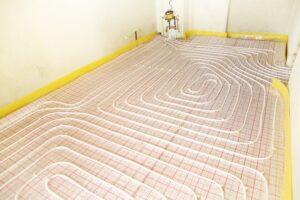Are you considering revamping your home’s heating system but confused by the sheer number of choices available in the market? Always wondering how to make a choice that’s both eco-friendly and cost-effective? Well, we’ve got you covered. Welcome to our comprehensive exploration of one of the most efficient and sustainable solutions – hydronic heating systems.
Many of us have read or heard about hydronic heating systems, but what does it mean? How does it work? Most importantly, how does it impact our environment and wallet? Today, we will demystify hydronic heating, taking you through its functionality, benefits, drawbacks, and its impact on our environment.
These questions, and many others, will be answered, effectively simplifying your decision-making process. So, let’s dive into the deep end and uncover the intriguing world of hydronic heating systems!

What Is a Hydronic Heating System?
It’s always essential to understand the basics before any deep dive, so we’ll start by exploring what a hydronic heating system entails.
A hydronic heating system, often referred to as a ‘wet system’, harnesses hot water (or another liquid) to distribute heat around a property. A boiler heats the water, propelled by a pump, through a network of pipes installed under the floor or within the walls. This hot water emits heat, warming up the surrounding areas and offering an evenly distributed, comfortable source of warmth.
Why Choose Hydronic Heating Systems?
Now, you might be thinking, why choose a hydronic heating system over other heating options available in the market?
Well, the answer lies in a multitude of factors – efficiency, comfort, adaptability and last but definitely not least, environmental impact. Overall, these systems are efficient. They require less energy to run, translating into lower energy costs. They radiate a gentle, natural heat, an undeniable comfort benefit. Furthermore, hydronic heating is remarkably adaptable, allowing you to control the heating in individual rooms or zones.

Environmental Impact of Hydronic Heating Systems
As environmental consciousness grows, so does the necessity of opting for green solutions. But where does hydronic heating fit within this equation?
Hydronic heating systems proudly stand their ground as an eco-friendly heating option. They consume less energy than their counterparts, significantly reducing CO2 emissions. By combining it with renewable energy sources like solar or geo-thermal, its sustainability factor skyrockets.
Pros and Cons of Hydronic Heating Systems
Like all things in life, hydronic heating systems come with their advantages and disadvantages.
On the plus side, they are energy-efficient, reducing greenhouse gas emissions and allowing lower running costs. They offer a clean and quiet heating solution with no draughts or dust circulating. They also provide design flexibility, with options for underfloor, in-wall or even in-ceiling installation.
However, one cannot overlook the initial installation cost, which can be quite high. Moreover, they are slower to heat and cool down; hence quick temperature changes might be a challenge.
The Aesthetic and Architectural Angle
Can a heating system amplify the aesthetic appeal of your home, you ask? Well, surprisingly, with hydronic heating, it’s a ‘yes.’
Architecturally, hydronic heating grants incredible flexibility. You can choose seamless in-floor systems that remain entirely invisible or radiators that add a distinctive style element. Whether you are a minimalist or a traditionalist, there’s a hydronic heating model to complement your home’s architecture.
Maintenance and Lifespan of Hydronic Heating Systems
Like any system installed in your home, hydronic heating systems need regular maintenance to maintain their efficiency and extend their lifespan.
Ideally, an annual service check is advisable to ensure all components function optimally. If maintained properly, a hydronic heating system can serve you effortlessly for over 20 years, making it a long-term, sustainable investment.
Conclusion
So, is investing in a hydronic heating system worthwhile? After a comprehensive deep dive, it’s clear that hydronic heating is not just a trendy phrase thrown around in the home improvement industry. Instead, it’s a highly efficient, sustainable, and comfortable heating solution that, despite its high installation cost, offers significant long-term benefits. The environmental footprint, coupled with energy efficiency and design flexibility, make it a potential game-changer in the heating world. It’s safe to say that choosing a hydronic heating system is choosing to invest in a greener and more sustainable future – not just for your home, but for our planet as well.

Comments are closed.